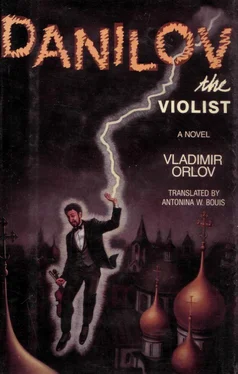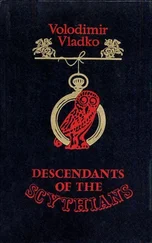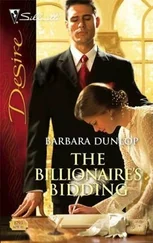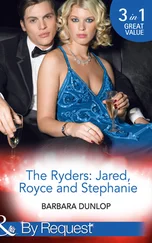Then, without his former timidity, although still agitated, he examined all the captivating details of the marvelous viola, palpated it tenderly, almost caressing, moved his fingers over all four strings, sought hidden dust particles in the crevices of the scroll, convinced himself that the upper and lower nuts, and fingerboard, and bridge of maple were well attached, and then moved his dry palm over the decks of mountain pine covered in Bolzana with a delicate brown lacquer, felt the impeccable smoothness of the purfling running around the upper deck, the sweet roundness of the rib, and the strong curves of the side indentations. Everything was wonderfull There was harmony in it all, just as in music! Danilov shut his eyes and used his fingers on the instrument the way a blind man touches his beloved's face. He recognized everything, he remembered it all! Danilov played the Milhaud piece again and then took out a large cashmere scarf from his closet. He had bought it in Tokyo just in case, to placate his ex-wife, but when she went through his suitcases, she had somehow overlooked it. Danilov wrapped the instrument in it and placed it in the case. Later he always put away his viola in the cashmere scarf.
Joy and art aside, the instrument was a valuable piece of property. Danilov immediately insured it. He could not even imagine that he would ever part from the instrument, but he had to have some protection. He had nothing but scorn for the insurance policy itself, but he paid his premiums regularly. Even though he was in debt. An orchestra player's salary, no matter how good the theater, is not enormous. Danilov repaid his friends on the relay-race system -- he borrowed from Peter to repay Paul. Sometimes there were snags in the debt flow, and Danilov had to get his friends to extend a particular loan. Soon he absolutely had to pay back seven hundred rubles to the Dobkins, and there was no place to get it. So, no matter how ashamed he was of the fire at Planerskaya, today for certain he had to go see the Muravlyovs -- first, simply to relax at their house, and second, to discuss with them his next step. Luckily he didn't have an evening performance.
However, the Muravlyovs needn't have bothered to wait. The lobio cooked on the gas range in vain.
In the morning, Danilov dropped by the savings bank, stood in line, and paid the mortgages. It was stuffy at the bank. The illiterate old ladies focused on Danilov as the one to fill in their forms and receipts -- he inspired great confidence. Danilov's fingers were stained with ink and every time he looked up from the paperwork, his eyes rested on a poster featuring a bosomy lady holding co-op payment booklets in her hands; above her in bold letters were the words "It's not parties that make a home -- it's paying off your mortgage!" Then Danilov had to return his bottles. There was a line of people with carts and bags at the refund stand. But Danilov was in luck, for the woman in charge, who was as self-important as an empress at a military review, said: "Hey, you, go load up the truck with these cases, or I'll have to close up. Take off your coat, or you'll get it dirty." Less than forty minutes later, Danilov had earned the right to refund his bottles at the back door. He didn't have time to get to the dry cleaners for his trousers, so he figured the heck with it -- after all, some of the buttons were missing.
At eleven Danilov was on Kachalov Street at the recording studio, where he was performing a Hindemith piece with an unfamiliar orchestra for Channel 3. The music was interesting, and radio pay was tolerable. As Danilov was wrapping his viola in the cashmere scarf, Strekalov, the oboist, came over to tell him a story about the hockey player Maltsev. Danilov was a big Dynamo fan and he wanted to hear about Maltsev; however, he found the discipline to say, "Excuse me, Kostya, I'm late for the theater." On the way he managed to eat a fruit-flavored ice cream stick and still not be late. They were rehearsing a ballet by Slovensky, The Chronicles of a Dive Bomber; twice Danilov had to play across the melody and even against it, but he and the conductor were pleased. In the break Danilov started looking for the oboe player, but he then remembered that he had been playing with Strekalov in a different orchestra. "Pfui!" said Danilov in dismay. "I could have listened to the story about Maltsev and still been on time ..." He ran to the food counter, but Galina Petrovna Nikoleva, dressed as Zibel, the woman warrior, came over to him. She was in charge of the evening program series.
"Here, Volodya," Nikoleva said. "This is the schedule of our conductor's concerts. It's not our sector, but they felt there was work for you here, too."
"All right," Danilov said, taking the paper. "I'll be glad to."
He was really close to the food now, but Sanin, one of the administrators, grabbed him by the arm.
"Let's go, let's go," Sanin said. "People keep phoning you, and I have to run all over the theater to find you."
The call was from Sergei Mikhailovich Melekhin, an old friend of Danilov's.
"Volodya, dear," Melekhin said nervously, "I rarely ask you for anything, but now I'm simply begging..."
Melekhin was in charge of club activities at an affluent scientific research institute, and he begged Danilov for things often.
"What do you want?" Danilov asked.
"We're having a program, you just have to play a few opuses, you know we pay well, it's tonight -- "
"I can't tonight... friends are expecting me..."
"You don't have a performance! You just have to play a bit, you'll be on time for your friends... We pay well, this is science here, not art, like you people. The speakers will have come for nothing if you don't come. Professors, art historians -- ten of them -- you'll play pieces composed by humans and by computers. For comparison ... it'll be interesting for you, too. The works were written especially for the viola..."
"For the viola?" Danilov was amazed.
"For the violai" Melekhin saw that Danilov was nibbling at the bait. "The computer wrote for the viola, can you imagine mat! Then people, professors, coming just for the viola. And if there's no musician, it'll be a scandal, I'll be fired! Help me out, be a pal, and I'll hand you the cash in a white envelope on the spot..."
"I'll think about it," Danilov said uncertainly.
"What's to think about! Be at my office right at seven, you'll look over the music, play, and get to your friends' house...."
"Well, all right..."
"Great! You've saved me! That S.O.B. -- by the way, you know him -- Misha Korenev -- promised a week ago, and canceled at the last moment.... I'll expect you at seven!"
Melekhin hung up energetically, before Danilov could think twice. Danilov stood by the phone and thought: "What does Misha Korenev have to do with this? Misha never even picked up a viola, he's a violinist in a pops orchestra..." However, such considerations were already beside the point.
At seven, Danilov, berating himself for being weak-willed, arrived at the glass-and-aluminum club of the institute. A crowd was buzzing in the hall and lobby -- after the music discussion they were screening Sun Valley Serenade, borrowed from the film foundation. Backstage the professors were smoking, all respectable and self-confident men. Among them Danilov saw Kudasov. Kudasov was pressuring Melekhin by saying that he was late and demanding that they begin. However, as soon as he spied Danilov he froze as stiff as Lot's wife. Regaining his senses, he sailed up to Danilov and said: "You're here, too? The food's getting cold at the Muravlyovs'! Well, this is marvelous, we'll ride over together." And he inhaled through his nose, sucking in smells from that far-off, soul-stirring kitchen.
Casting a sideways glance at Danilov, Melekhin acted as if he hadn't just a few hours before been on his knees at the telephone, but instead Danilov had forced his way onto the panel. Melekhin came over, took Danilov by the arm, led him to an empty room, and handed him the music. Staring off through the wall somewhere at the burdens of his job, he said: "You've got an hour, Volodya, there are only sixteen pieces here, eight by human composers, eight by computers, you can look them over, or you can take a nap -- I know you can sight-read Stravinsky... That Misha Korenev is such a shit!"
Читать дальше












